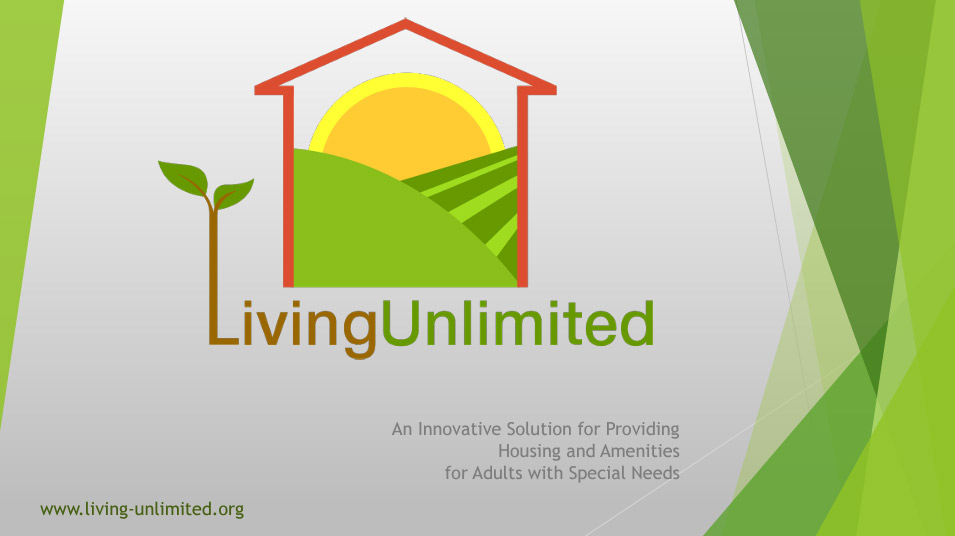Presentations
Most children with intellectual or developmental disabilities (I/DD) remain in their parents homes because other options are limited. For both parents and children, this can be stressful. Often, both parents and children prosper when a successful transition can be accomplished to independent or semi-independent living. For many parents of I/DD children, a transition is desirable when their children reach adulthood, in the same way that neurotypical children often leave home to go to college or get married or to seek their fortunes. Most people with I/DD will outlive their parents. So, sooner or later, transition will occur. This is a difficult process and occurs in households that are often overburdened with the day-to-day tasks of everyday life. At the same time, housing for this population is difficult to find.
Our Presentations
Many with special needs also benefit from the therapeutic value of animal interaction and care, and from the intrinsic rewards associated with working the land and being part of the natural cycle of planting, tending, harvesting, preparing and eating one’s own fruits, berries, vegetables, eggs, honey, meat and dairy products.
The idea with LBTF was to bring families of children with special needs together to encourage the creation of rural housing communities. We hoped that families would coalesce into groups with similar timeframes, philosophies and visions, and farms would be popping up all over the place. We learned that it takes more than just bringing like-minded people together. It is difficult to navigate all of the issues involved with housing for anything outside of the usual development or single family home. There is so much to learn and to do. The range of complex issues involving government regulations, investment structure, land acquisition and development, property management, transition management, service provision and more is overwhelming for most small groups of families.
The idea with LBTF was to bring families of children with special needs together to encourage the creation of rural housing communities. We hoped that families would coalesce into groups with similar timeframes, philosophies and visions, and farms would be popping up all over the place. We learned that it takes more than just bringing like-minded people together. It is difficult to navigate all of the issues involved with housing for anything outside of the usual development or single family home. There is so much to learn and to do. The range of complex issues involving government regulations, investment structure, land acquisition and development, property management, transition management, service provision and more is overwhelming for most small groups of families.
What became apparent from our LBTF gatherings is that families want (in some fashion) what others across the nation have already established, in the more than 50 existing farms and ranches we have identified. But few parents have the time, energy or resources to pull off such endeavors. Since virtually all of these farms and ranches have been established by parents for their own children, they typically have no interest in starting more than one farm. Then, quite naturally, their efforts turn to managing the farm they have started. As a result, when new families do pull together to create such projects they tend to spend a lot of time and effort recreating the process mostly from scratch. This need to “reinvent the wheel” every time led a small group of individuals from the LBTF group to start meeting and concentrate on how best to get families what they want. It was during these small group sessions that the idea for “Living Unlimited” (LU) was born to promote and facilitate the process of forming and running these farms and ranches, for the benefit of the residents and their families.
Since then, LU has expanded its mission to include suburban and urban options as well. LU is dedicated to promote fulfilled lives for young adults with special needs by providing safe housing and worthwhile life-activities.


